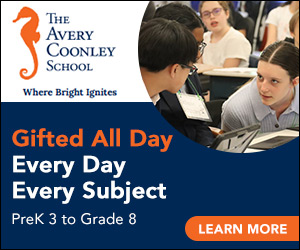Unlocking the Potential: Online Learning the Gifted STEM Mind
By Michelle Buchanan & Monica Meadows
For gifted students with an insatiable curiosity for knowledge in Science, Technology, Engineering, and Mathematics (STEM) subjects, online learning platforms launch these thirsting minds on journeys that traditional classrooms could only dream of.
Imagine a virtual lab where gifted students from across the globe dissect the mysteries of black holes or crack the code of genetic engineering. Collaborative platforms like Science Olympiad (https://www.soinc.org/) and Rube Goldberg Machine Contests (https://www.rubegoldberg.org/rube-goldberg-contests/) transform STEM learning into a cosmic dance, where ideas ricochet between peers, igniting critical thinking and collaborative problem-solving. Students can work together or virtually to design solutions to today's challenges or imagine the possibilities of tomorrow's needs while fostering a sense of shared discovery and scientific camaraderie.
For the independent explorer, online platforms offer solitary learning experiences while providing interdisciplinary investigations. Resources like Codecademy (https://www.codecademy.com/) and Khan Academy (https://www.khanacademy.org/) provide curated information, interactive simulations, and virtual labs, empowering students to delve into topics beyond a traditional textbook. The 2024 solar eclipse, for instance, could become a springboard for independent research, with platforms like the NASA Eclipse Website (https://eclipse.gsfc.nasa.gov/) offering data visualizations and citizen science projects. Students can analyze the sun's corona, model the path of the moon's shadow, or even create educational resources to share with the world.
Online learning isn't just about absorbing facts; it's about expressing that knowledge in vibrant, creative ways. Websites like Tynker (https://www.tynker.com/) and Scratch (https://scratch.mit.edu/) have become artist studios where students can code interactive games, build virtual robots, or compose musical pieces inspired by the rhythm of the planets. Imagine your gifted students, fueled by online learning, creating captivating video animation explaining the intricacies of forces and motion, captivating not just their classmates but a global audience.
In online learning platforms, teachers guide students through their investigations. Online platforms like Nearpod (https://nearpod.com/) and Edpuzzle (https://edpuzzle.com/) empower them to curate personalized learning paths, provide real-time feedback, and even facilitate student-led webinars, where gifted minds can share their discoveries with the world. Teachers can create online communities with Zooniverse (https://www.zooniverse.org/) and Make (https://makezine.com/), where students can discuss complex topics, ask questions, and challenge each other's ideas, fostering a culture of intellectual curiosity and collaboration.
But the possibilities continue. Imagine online learning supporting students in:
- Conducting virtual field trips to the depths of the ocean or the fringes of the galaxy through platforms like Google Earth VR
- Participating in live Q&A sessions with invited STEM professionals on platforms like Flip.
- Collaborating on international research projects with peers from across the globe using platforms like ePals
While online learning offers exciting opportunities for gifted students to delve deeper into STEM subjects, it's not without its challenges and limitations, specifically with social-emotional learning, motivation, individualized assessment, and equity and accessibility. Gifted students often thrive on intellectual stimulation and social interaction with like-minded peers. While providing access to a broader pool of peers, online learning could benefit from more spontaneous discussions and collaborative problem-solving in physical classrooms. Additionally, self-directed learning can be challenging to gifted students as they may need help with the self-directed nature of online learning. Staying motivated and focused with immediate feedback or a structured environment can be easier for some.Moreover, while offering some degree of customization, online platforms may need help to cater to the specific needs and learning pace of individual gifted students. Teachers need practical tools and strategies to differentiate instruction and ensure all students are challenged appropriately. Not all students have equal access to technology and reliable internet at home, creating a digital divide and leaving some gifted students from disadvantaged backgrounds without the opportunity to benefit from online learning opportunities. Teachers should employ careful planning to ensure time is provided during school hours for online learning opportunities.
In a world where the boundaries of STEM are constantly expanding, online learning becomes the fuel that propels gifted minds to explore the STEM curiosities within and beyond the classroom walls and unleash the next generation of scientists, engineers, astronauts, and innovators.
Please visit STEM Network on ENGAGE (https://engage.nagc.org/) and share your thoughts about these questions:
- How do you see the teacher's role in facilitating and guiding online learning, especially ensuring that gifted students are adequately challenged and supported?
- How might online learning platforms cater to the diverse needs of gifted students with varying proficiency levels and interest in STEM subjects?
- What are some innovative ways teachers have overcome the limitations of online learning, especially of social-emotional learning and individualized assessment?
Michelle Buchanan, PhD, NBCT University of Central Arkansas and Monica Meadows, Ed.D., University of Arkansas at Little Rock are Chair and Chair-Elect of NAGC's STEM Network. Learn more about all NAGC networks and special interest groups.


